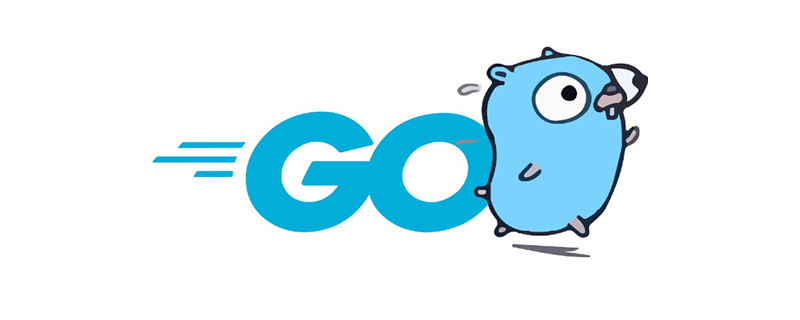Heim >Backend-Entwicklung >Golang >So generieren Sie eine dynamische Go-Bibliothek oder eine statische Go-Bibliothek in Go
So generieren Sie eine dynamische Go-Bibliothek oder eine statische Go-Bibliothek in Go
- 尚nach vorne
- 2019-11-28 15:21:525230Durchsuche

Vorkenntnisse
Plugin-Modus
Plug-in-Laufmodus
Verwendung des Go-Plugin-Pakets
Verwandte Kenntnisse (empfohlen: Go-Sprach-Tutorial)
Go Build kann Geben Sie den Buildmodus an. In mehrere Modi unterteilt. Die spezifischen Modi sind wie folgt.
| 模式 | 说明 |
|---|---|
| 当前go版本 | 1.10.3 |
| archive | 编译成二进制文件。一般是静态库文件。 xx.a |
| c-archive | 编译成C归档文件。C可调用的静态库。xx.a。注意要编译成此类文件需要import C 并且要外部调用的函数要使用 “//export 函数名” 的方式在函数上方注释。否则函数默认不会被导出。 |
| c-shared | 编译成C共享库。同样需要 import “C” 和在函数上方注释 // export xxx |
| default | 对于有main包的直接编译成可执行文件。没有main包的,编译成.a文件 |
| exe | 编译成window可执行程序 |
| plugin | 将main包和依赖的包一起编译成go plugin。非main包忽略。【类似C的共享库或静态库。插件式开发使用】 |
Instanz
结构:
-softplugin //根目录
-soft //软件目录
-plugins //插件目录
-itf //接口目录Keine benutzerdefinierten Daten
// plugins/hello.go
package main
import "fmt"
func Hello(){
fmt.Println("hello")
}
// go build -buildmode=plugin -o hello.so hello.go
// soft/basetype.go
package main
import (
"os"
"path"
"plugin"
"fmt"
)
func main(){
//加载插件
pluginDir := "../plugins"
//扫描文件夹下所有so文件
f, err := os.OpenFile(pluginDir, os.O_RDONLY, 0666)
if err != nil {
panic(err)
}
fi, err := f.Readdir(-1)
if err != nil {
panic(err)
}
plugins := make([]os.FileInfo, 0)
for _, ff := range fi {
if ff.IsDir() || path.Ext(ff.Name()) != ".so" {
continue
}
plugins = append(plugins, ff)
pdll, err := plugin.Open(pluginDir + "/" + ff.Name())
if err != nil {
fmt.Println(err)
continue
}
plg, err := pdll.Lookup("Hello")
if err != nil {
panic(err)
}
plg.(func())()
}
}
// go run basetype.goPlug-in-Schnittstellenschnittstelle definieren.
//------------------------------------------------------
// itf/itf1.go
package itf
type Printor interface{
Print(v interface{})
}
//------------------------------------------------------
// plugins/p1.go
package main
import (
"fmt"
"softplugin/itf"
)
type ScreenPrintor struct{}
func (ScreenPrintor)Print(v interface{}){
fmt.Println("p1p1 ",v)
}
func Install() Printor{
return &ScreenPrintor{}
}
//-----------------------------------------------------
// soft/s1.go
package main
import (
"softplugin/itf"
"os"
"path"
"plugin"
"fmt"
)
var(
printors = make([]itf.Printor, 0)
)
func main(){
//加载插件
pluginDir := "../plugins"
//扫描文件夹下所有so文件
f, err := os.OpenFile(pluginDir, os.O_RDONLY, 0666)
if err != nil {
panic(err)
}
fi, err := f.Readdir(-1)
if err != nil {
panic(err)
}
plugins := make([]os.FileInfo, 0)
for _, ff := range fi {
if ff.IsDir() || path.Ext(ff.Name()) != ".so" {
continue
}
plugins = append(plugins, ff)
pdll, err := plugin.Open(pluginDir + "/" + ff.Name())
if err != nil {
fmt.Println(err)
continue
}
plg, err := pdll.Lookup("Hello")
if err != nil {
panic(err)
}
printors = append(printors, (plg.(func() itf.Printor))())
}
for _, p := range printors {
p.Print("pppp")
}
}Das obige ist der detaillierte Inhalt vonSo generieren Sie eine dynamische Go-Bibliothek oder eine statische Go-Bibliothek in Go. Für weitere Informationen folgen Sie bitte anderen verwandten Artikeln auf der PHP chinesischen Website!
Stellungnahme:
Dieser Artikel ist reproduziert unter:csdn.net. Bei Verstößen wenden Sie sich bitte an admin@php.cn löschen
Vorheriger Artikel:Datenstruktur in der Go-Schnittstelle (ausführliche Erklärung)Nächster Artikel:Datenstruktur in der Go-Schnittstelle (ausführliche Erklärung)

